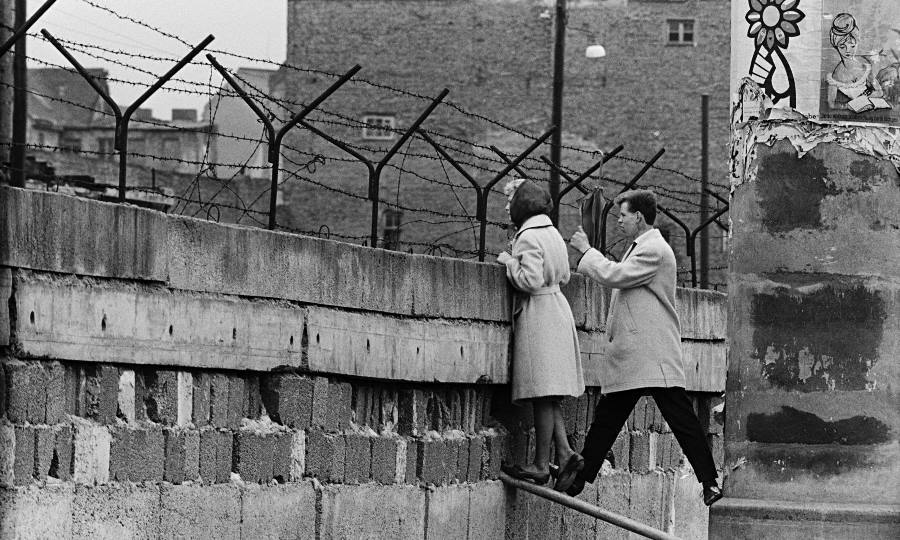Relations between Russia and Germany became tense due to the Ukrainian crisis. Yesterday in New York, Foreign Ministers Sergey Lavrov and Frank-Walter Steinmeier tried to reduce the tension in the relations at the 70th session of the UN General Assembly. They spoke about the situation in Syria, Libya and Ukraine in the context of the upcoming meeting in the Normandy format in Paris on October 2nd, about Russian-German contacts, including economic relations and preparation for the Year of Youth Exchanges in 2016.
The year is special for Germany. On October 3rd it will mark the 25th anniversary of reunification of Germany. The GDR disappeared on that day, and its state institutions were eliminated, the army was deactivated and the Navy was disbanded. The FRG, which merged with the GDR, remained a member of the European Economic Union and NATO. Since 1990 the 3rd of October has been a national holiday.
Rudiger von Fritsch, German Ambassador to Russia, says that the reunion took place “in conditions of peace and in conditions of harmony with all our friends and partners.” “The support that was provided to us at the time by Soviet Union under the leadership of Gorbachev is also related to this agreement with our partners. There were a lot of critical issues, at both international level and within Germany affecting whether this reunion to happen. It was a huge challenge that we faced: two separate states reunited, two societies, two economies, economic systems, which had developed separately from each other for 40 years. It was a huge economic challenge, a huge social challenge and a great challenge from a human point of view. 25 years have passed, and a survey was conducted, and it turned out that Germans, both in the West and in the East, for the most part, believe that this reunion was successful. Of course, the fact is that economic development in Germany is quite positive, and employment is quite high.”
According to the German diplomat, nowadays the fact that our head of government, Mrs. Federal Chancellor Merkel, and our Federal President, the Head of State, are natives of East Germany, is hardly thematized.”

The ambassador says that for 25 years Germany has been trying to build its foreign policy so that it would be based and focused on rules and agreements: “Part of our responsibility was the desire to form our relationship with Russia on a good basis, and on the basis of mutual understanding. Germany spoke in favour of Russia becoming a member of the Group of Eight, in favour of signing the Russia-NATO Founding Act, in favour of signing an agreement on partnership and cooperation between the EU and Russia. And at the bilateral level, we have very extensive and intensive economic, cultural, scientific relations. But the trust was violated due to the awful conflict, the victim of which became Ukraine.”
Rudiger von Fritsch stated that in this context Berlin has tried to become a peacemaker: “Together with our French partners, in the role of intermediaries, in the role of partners, we tried to do everything to ensure that this conflict would be overcome, and overcome through dialogue, through political means. And maybe this week we do have such situation, in which there will be a decisive breakthrough – on October 2nd in Paris the heads of state and governments of the Normandy format will meet.”
Germany hopes that Moscow will use its influence in order to achieve three things.
“Firstly, it is for the cease-fire achieved and held since early September to be indeed strengthened and put on a solid basis by withdrawal of small and large caliber weapons. Secondly, for those who are responsible in Lugansk and Donetsk to allow international humanitarian organizations to go there, to work on those territories without hindrance. And thirdly, and it is very important, for no unilateral steps to be taken, such as the holding of local elections, which would fundamentally violate the Minsk Agreement,” the German diplomat said.
According to him, “Ukraine occupies us intensively and comprehensively. Nevertheless, it should not make us forget that German-Russian relations are much broader, much richer, much deeper, as evidenced by those 25 years that have passed. Our common history can be a story of success. It should not be forgotten that there is no alternative to good German-Russian relations.”






